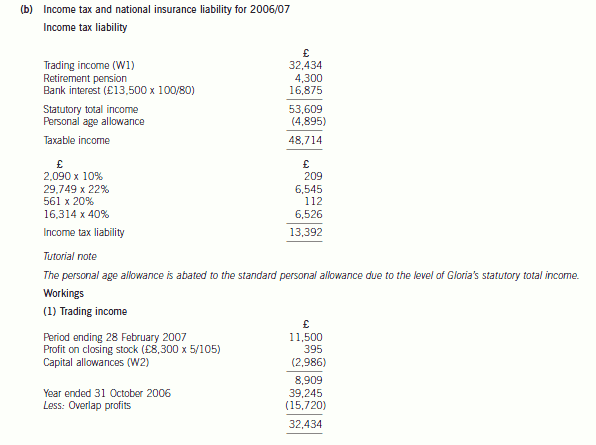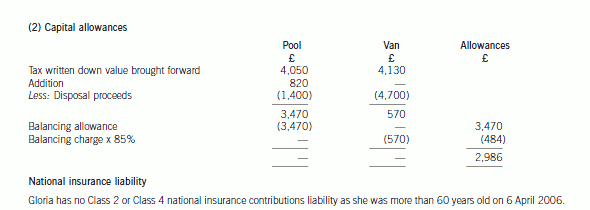还不知道ACCA与CPA到底有什么区别?那就快戳进来看看吧
发布时间:2019-03-09
现在有很多人开始青睐于国外ACCA考试,而ACCA考试就是特许公认会计师公会(国际注册会计师),相信很多人就有疑问了,都是注册会计师,那么ACCA考试和国内的CPA考试到底有什么区别,别着急,现在小标就来详细给你们讲讲。
一、 从考试时间来说
如果要参加ACCA考试,F1-F4随时可以参加机考;F5-P7每年有4次全球统考机会,分别为3月、6月、9月、12月的第一周。但是从2018年3月开始,F5-F9取消笔试,只有机考,时间仍为全球统考的3月、6月、9月、12月,只是为分季机考。
如果是参加国内的CPA考试,那么专业阶段考试时每年10月份,综合阶段的考试是每年8月份。
二、 从考试通过率来看
根据ACCA考试的统计数据来看,全球每年的考试通过率大概为40%-50%,等级稍微低一点的ACCA考试科目的通过率会相对来说更高一点。其实这也是因为 ACCA考试没有刻意的去控制通过率,只要学员的水平能够达到50分的标准,也就视为通过考试了。
而国内的CPA考试每年的通过率为10%左右,面对中国如此众多的考生,要达到这样的通过率,考官们往往会呈现一些偏题和怪题,以达到成绩等级的正态分布。
三、 从考试考查的角度来看
ACCA更侧重于以实际案例为背景,要求考生进行分析,提升ACCA考生发现、分析和解决问题的能力。在这过程中,ACCA要求考生结合财务因素和非财务因素,从多角度去考虑问题。除了前几门ACCA科目以客观题为主之外,之后的大部分科目都以主观题为主,没有所谓的标准答案,ACCA考官只需要考生独到的见解和有力的分析。
CPA侧重于会计和审计,最终服务于审计,因此一般只考虑财务因素,考的更多的是计算,要求精准、快速,考试的题型一般是主客观题各占一半,大部分都不需要论述,具有唯一标准的答案。
四、 从知识体系来看
ACCA的知识体系则是呈阶梯状的,难度也是层层递进,内容涉及到财务呈报体系、审计体系、财务管理体系、法律体系和税收体系,ACCA基本上涵盖了本科财务相关专业的所有教学和硕士教学的部门科目。
CPA考试一共是六门科目,再加一门综合,分别是会计、审计、财务管理、税法、经济法、战略,这六门科目基本呈并列关系,难度相差不大,钻研得也很深。
说了这么多ACCA考试与CPA考试的区别,你有一些收获了吗,其实考哪个证不重要,重要的是看看自己适合考哪个资格证。
下面小编为大家准备了 ACCA考试 的相关考题,供大家学习参考。
2 (a) Discuss the nature of the financial objectives that may be set in a not-for-profit organisation such as a charity
or a hospital. (8 marks)
2 (a) In the case of a not-for-profit (NFP) organisation, the limit on the services that can be provided is the amount of funds that
are available in a given period. A key financial objective for an NFP organisation such as a charity is therefore to raise as
much funds as possible. The fund-raising efforts of a charity may be directed towards the public or to grant-making bodies.
In addition, a charity may have income from investments made from surplus funds from previous periods. In any period,
however, a charity is likely to know from previous experience the amount and timing of the funds available for use. The same
is true for an NFP organisation funded by the government, such as a hospital, since such an organisation will operate under
budget constraints or cash limits. Whether funded by the government or not, NFP organisations will therefore have the
financial objective of keeping spending within budget, and budgets will play an important role in controlling spending and in
specifying the level of services or programmes it is planned to provide.
Since the amount of funding available is limited, NFP organisations will seek to generate the maximum benefit from available
funds. They will obtain resources for use by the organisation as economically as possible: they will employ these resources
efficiently, minimising waste and cutting back on any activities that do not assist in achieving the organisation’s non-financial
objectives; and they will ensure that their operations are directed as effectively as possible towards meeting their objectives.
The goals of economy, efficiency and effectiveness are collectively referred to as value for money (VFM). Economy is
concerned with minimising the input costs for a given level of output. Efficiency is concerned with maximising the outputs
obtained from a given level of input resources, i.e. with the process of transforming economic resources into desires services.
Effectiveness is concerned with the extent to which non-financial organisational goals are achieved.
Measuring the achievement of the financial objective of VFM is difficult because the non-financial goals of NFP organisations
are not quantifiable and so not directly measurable. However, current performance can be compared to historic performance
to ascertain the extent to which positive change has occurred. The availability of the healthcare provided by a hospital, for
example, can be measured by the time that patients have to wait for treatment or for an operation, and waiting times can be
compared year on year to determine the extent to which improvements have been achieved or publicised targets have been
met.
Lacking a profit motive, NFP organisations will have financial objectives that relate to the effective use of resources, such as
achieving a target return on capital employed. In an organisation funded by the government from finance raised through
taxation or public sector borrowing, this financial objective will be centrally imposed.
(ii) Construct the argument against Professor West’s opinion, and in favour of Professor Leroi’s opinion that
a principles-based approach would be preferable in developing countries. Your answer should consider
the particular situations of developing countries. (10 marks)
(ii) Principles-based approach
Advantages of a principles-based approach
The rigour with which governance systems are applied can be varied according to size, situation, stage of development
of business, etc. Organisations (in legal terms) have a choice to the extent to which they wish to comply, although they
will usually have to ‘comply or explain’. Explanations are more accepted by shareholders and stock markets for smaller
companies.
Obeying the spirit of the law is better than ‘box ticking’ (‘sort of business you are’ rather than ‘obeying rules’). Being
aware of overall responsibilities is more important than going through a compliance exercise merely to demonstrate
conformance.
Avoids the ‘regulation overload’ of rules based (and associated increased business costs). The costs of compliance have
been a cause of considerable concern in the United States.
Self-regulation (e.g. by Financial Services Authority in the UK) rather than legal control has proven itself to underpin
investor confidence in several jurisdictions and the mechanisms are self-tightening (quicker and cheaper than legislation)
if initial public offering (IPO) volumes fall or capital flows elsewhere.
Context of developing countries
Developing countries’ economies tend to be dominated by small and medium sized organisations (SMEs). It would be
very costly and probably futile, to attempt to burden small businesses with regulatory requirements comparable to larger
concerns.
Having the flexibility to ‘comply or explain’ allows for those seeking foreign equity to increase compliance whilst those
with different priorities can delay full compliance. In low-liquidity stock markets (such as those in some developing
countries) where share prices are not seen as strategically important for businesses, adopting a more flexible approach
might be a better use of management talent rather than ‘jumping through hoops’ to comply with legally-binding
constraints.
The state needs to have an enforcement mechanism in place to deal with non-compliance and this itself represents a
cost to taxpayers and the corporate sector. Developing countries may not have the full infrastructure in place to enable
compliance (auditors, pool of NEDs, professional accountants, internal auditors, etc) and a principles-based approach
goes some way to recognise this.
(b) Compute Gloria’s total income tax and national insurance liability for 2006/07. (7 marks)


声明:本文内容由互联网用户自发贡献自行上传,本网站不拥有所有权,未作人工编辑处理,也不承担相关法律责任。如果您发现有涉嫌版权的内容,欢迎发送邮件至:contact@51tk.com 进行举报,并提供相关证据,工作人员会在5个工作日内联系你,一经查实,本站将立刻删除涉嫌侵权内容。
- 2021-05-29
- 2019-03-09
- 2019-12-29
- 2019-12-29
- 2021-05-29
- 2020-10-18
- 2019-11-14
- 2021-02-13
- 2020-09-04
- 2020-08-14
- 2020-01-02
- 2019-03-17
- 2020-01-01
- 2021-05-29
- 2021-02-13
- 2021-02-13
- 2019-12-29
- 2020-10-10
- 2021-02-13
- 2020-10-18
- 2019-03-17
- 2020-10-10
- 2021-02-13
- 2020-10-10
- 2020-10-21
- 2021-02-13
- 2020-10-10
- 2020-10-18
- 2021-02-13
- 2020-09-05